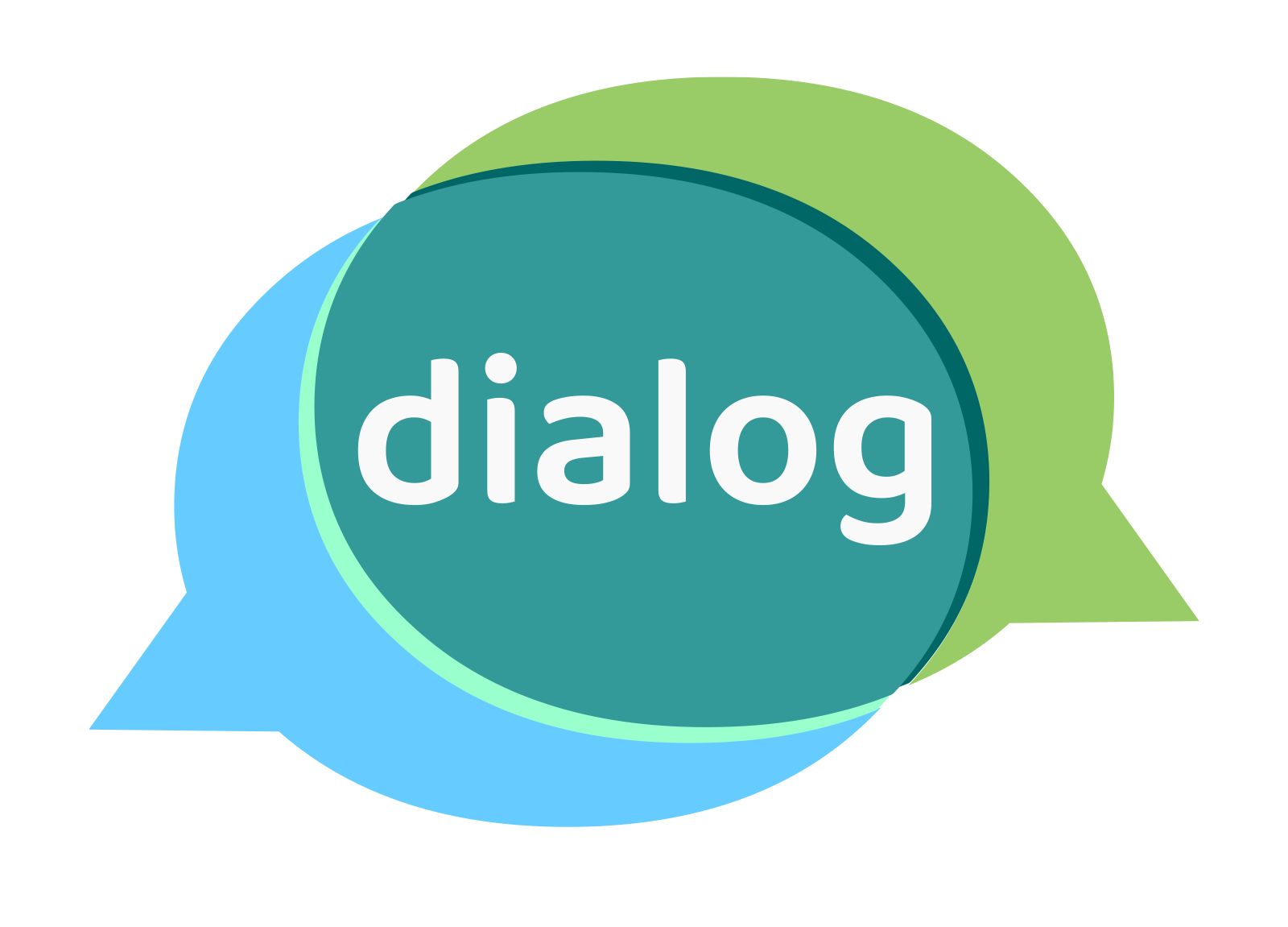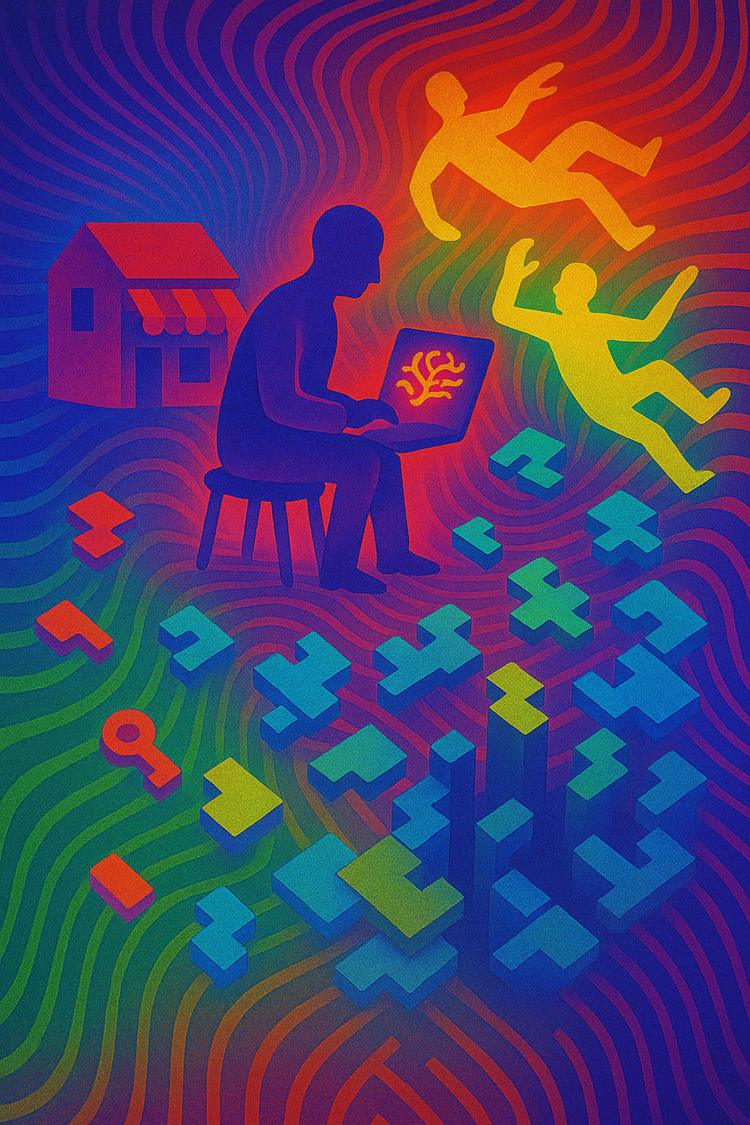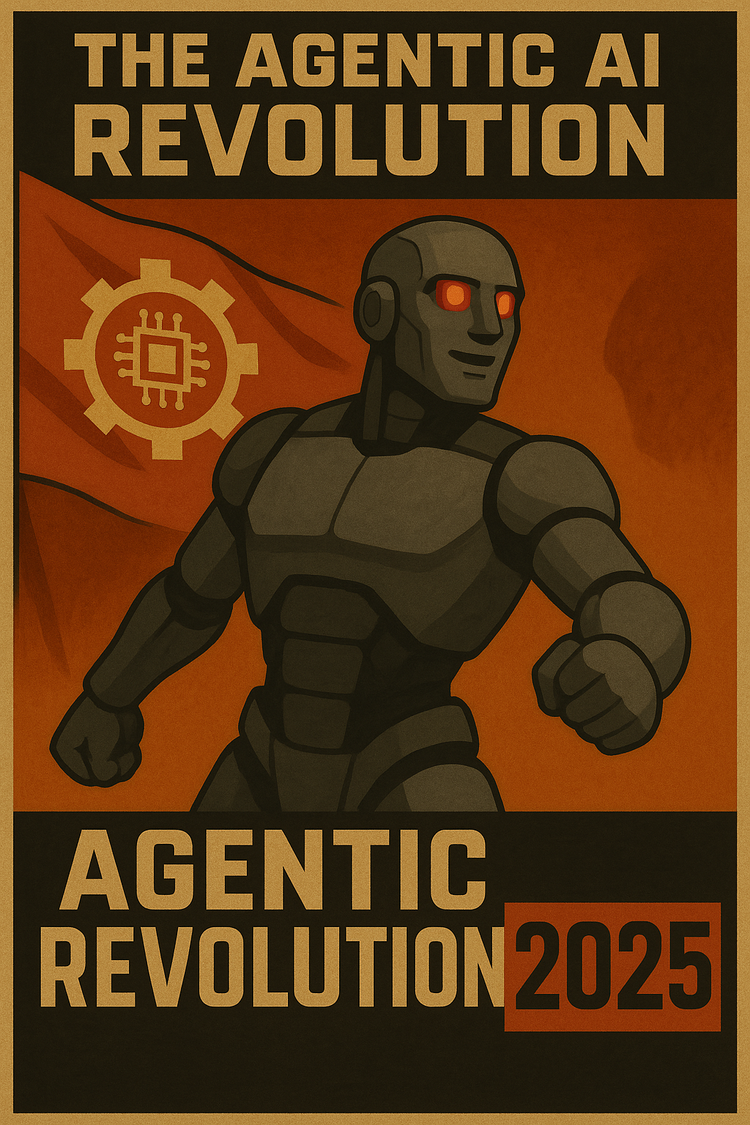Google Share Loss, AI Jobs Impact, Dead Internet, Heavy AI Searchers
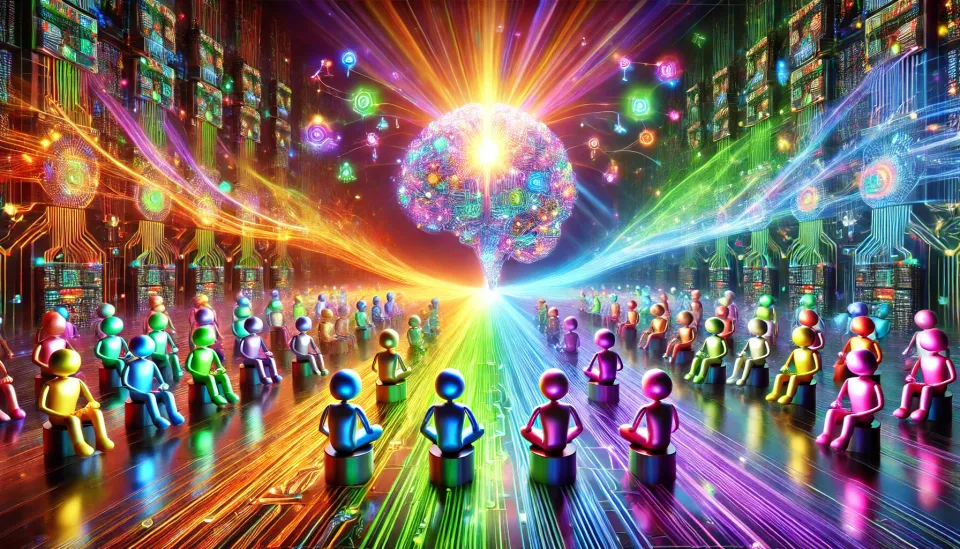
Has Google Lost Market Share to AI?
A new report suggests that Google could be losing market share to AI "answer engines" (mostly ChatGPT). This is based on Statcounter data that shows Google's global market share down over the past two years. At the time of ChatGPT's launch in November 2022, Statcounter reported Google's global share at 92.2%. This month it stands at 89.6%. That's a more than 2% decline. This is driven, it appears, by more significant losses in Europe, attributable to multiple factors. In the US, Google's reported share of search is 87.3%, down from 90.4% in December 2024. And referral traffic from AI engines, ChatGPT in particular, is growing. However, we shouldn't make too much of this until more data from more sources can corroborate it. Dialog's own consumer survey data would support the idea that a percentage of users are now substituting ChatGPT (and Gemini) for Google is some number of cases. But the story is complex and it's probably not a 1:1 swap. In addition, Google's very aggressive efforts to drive ad clicks will likely mask any decline for some time. Wall Street cares most about Google's continued revenue growth, although will get spooked if these declines are corroborated.
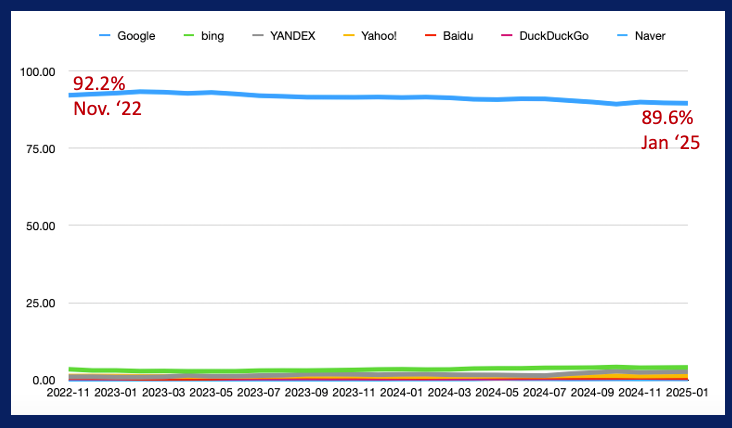

News & Noteworthy
- OpenAI lays out its "economic blueprint" for AI.
- Microsoft announces new Core AI platform division.
- AWS and Here partner to build next-gen AI cloud-based mapping.
- AWS CEO Garman on how AI is now fundamental to AWS's future.
- TikTok denies a Bloomberg story it's trying to get Elon Musk to buy the app.
- Many TikTok users migrating to Chinese version of Instagram.
- IAC approves spinoff of Angi; transaction will close in Q2.
- Healthcare: why AI may increase not reduce costs for providers.
- ChatGPT may be getting new "custom personality" options.
- Q4: AI drove smartphone sales for Samsung but not for Apple.
- China plans for humanoid robots to take on elder care.

AI Jobs Impact: It's Starting
The topic of job displacement and AI is controversial to say the least. On the one hand you have Goldman Sachs arguing in 2023 that AI could affect 300 million jobs. On the other you have the AI utopians who believe that AI will only create growth across industries and actual job losses will be minimal: "you won't lose your job to AI, only to someone using AI." Neither is accurate. While the Goldman Sachs scenario of hundreds of millions of people being displaced probably won't happen, every industry will be in some way impacted (positively and negatively). We're now starting to see that there are going to be job losses. The World Economic Forum's Future of Jobs report finds "41% [of employers] expect to downsize their workforce as AI capabilities to replicate roles expand." A new Bloomberg report says that 200,000 jobs on Wall Street could be lost over the next three to five years as AI is deployed by investment firms and big banks. Beyond this, tech companies will certainly outsource more coding jobs to AI. And Microsoft is now pitching AI to enterprises as a way to reduce costs by eliminating jobs. There will be restructuring with new hires and AI will create new jobs, but net job losses may be greater. One of the main AI benefits recognized in our SMB and agency surveys is reduced hiring requirements.
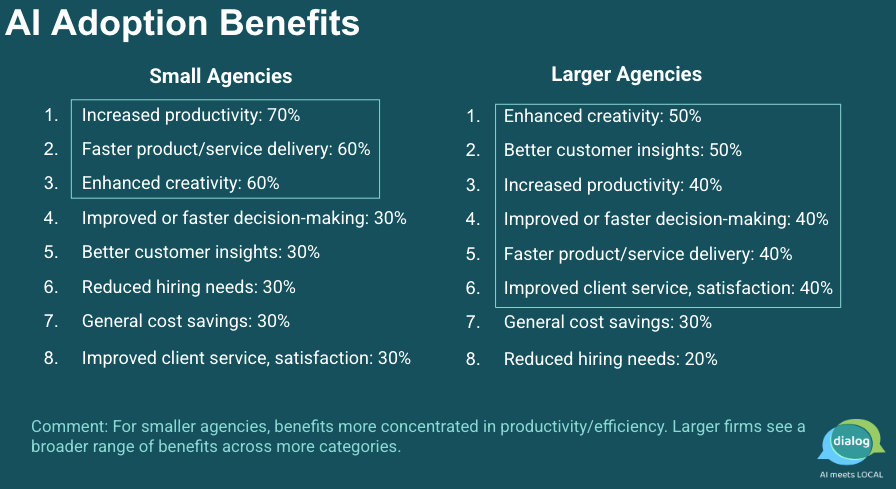

Will AI Kill the Internet?
The so-called Dead Internet Theory, a kind of conspiracy theory, argues that more and more of the internet is no longer a human creation or operation. The theory argues that bots will ultimately leave us with a zombie internet dominated by machines. AI has now become part of that thesis and a very pessimistic article argues that "AI slop" may make the internet unrecognizable and effectively "dead" in the not-too-distant future. AI content is certainly on the rise, with more social media, websites and even news being created entirely or partly with generative AI – and we're only a little over two years in. The How-to-Geek article in question cites a 2024 report that found "almost 50% of internet traffic comes from non-human sources [and] bad bots, in particular, now comprise nearly one-third of all traffic." Meta has also said it wants to fill its platforms with thousands AI "characters" (bots) to increase engagement. Then there's all the bots posing as people to spread disinformation and propaganda. Furthermore, agents may come to take over certain kinds of operations or transactions online, causing users to interact less directly with content than in the past. All of this suggests we are moving in the direction of the "dead internet." But the theory is too pessimistic and apocalyptic. The internet is rapidly changing. A more upbeat view is that AI may make "authentically human" content much more valuable and powerful over time.

Dialog Data: 'Heavy AI Users' Who Search More
When we fielded our recent consumer survey in late November we anticipated that the more people used AI the less they would use Google. That has certainly been our personal experience and what we've observed from anecdotal evidence. But when we looked at heavy AI users – the 28% of respondents who use AI multiple times a day – we found something very surprising: almost half (47%) of them say they use Google search more often today. Overall, that's roughly 13% of the survey population. There is a contingent of SEOs out there who argue for an "expanding pie" thesis – Google isn't losing share, overall query volume is increasing. But the story is neither 1:1 substitution, nor is it "expanding the pie" across the board. As mentioned above, the story is more complex – and evolving.
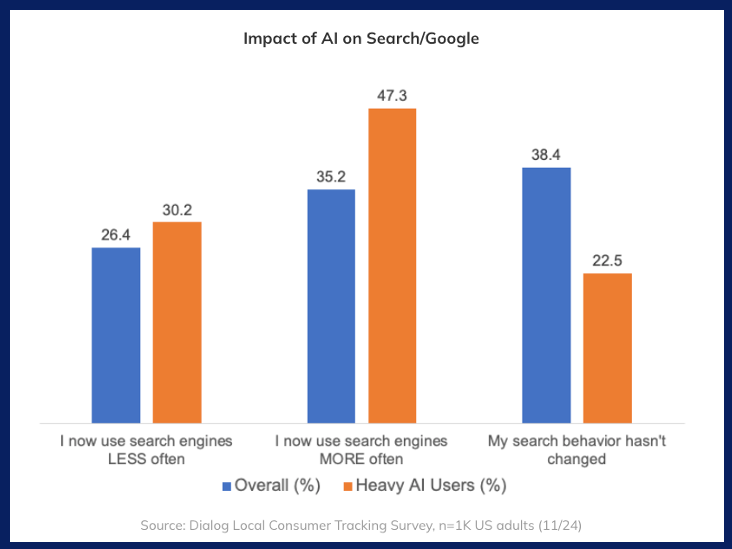
Funny | Disturbing | Sad
- Network of apps conspire to raise your auto-insurance rates.
- Why OpenAI may be hesitating to release its own agents.
- If even a tiny percentage of training data is bad, LLM is compromised.
- AI images may diminish appreciation for "real" photography and video.
If you're not getting this in your in-box, you know what to do...
